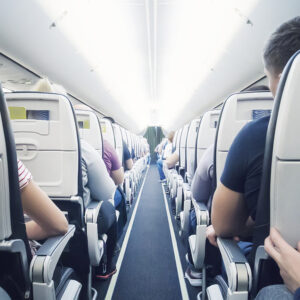Despite its position as a global leader, it seems that the United States is doing a lot of following these days. Countries around the globe are seeking to ease travel restrictions enacted in response to the COVID-19 pandemic. While the timeline for returning to pre-COVID life in the United States is unknown in the near term, there are many other nations successfully easing restrictions, including entry requirements, as borders (and economies) reopen. The United States needs to catch up or risk getting left behind.
The World Health Organization recently recommended to state parties: “Lift or ease international traffic bans as they do not provide added value and continue to contribute to the economic and social stress experienced by States Parties. The failure of travel restrictions introduced after the detection and reporting of Omicron variant to limit international spread of Omicron demonstrates the ineffectiveness of such measures over time.”
Government restrictions on international travel failed to prevent the spread of coronavirus. Yet, leaders of many governments around the globe (including the United States) continue implementing and revising a wide variety of vaccination, testing and quarantine requirements. Others, like Denmark, are relaxing travel restrictions to help economies recover while simultaneously finding other ways to protect the health of their citizens.
The United Kingdom, for example, eliminated the testing requirement for vaccinated travelers based on data and science. The United States should do likewise.
The U.S. government needs a long-term view of travel policies in an endemic. Knee-jerk reactions such as country-by-country travel restrictions, costly and burdensome testing requirements, and quarantine policies have failed to slow the spread of the virus and have prolonged the economic recovery.
Many U.S. travelers choose to avoid international travel, despite being fully vaccinated for fear of testing positive upon return and having to quarantine in a foreign country. Often, quarantine requirements include isolating at the traveler’s own cost or quarantining in a “COVID hotel,” operated by the host government with sub-optimal conditions and meals.
The demand for international travel remains high. Our global society is eager to get back to a level of normalcy that includes maintaining precautions while getting back to living and traveling. However, the risk of having to quarantine, and therefore extending the time away from family or work, is untenable for many — so they don’t do it — and the economy feels the pain.
The requirement for vaccinated travelers to test within 24 hours of departure is impractical and often difficult depending on the availability, convenience and access of testing in the location of the departing flight. For these vaccinated travelers, pre-departure requirements should be eliminated.
The world is waking up to reality, recognizing that we are moving from a pandemic to an endemic. There is broad acknowledgment and acceptance that we must learn to live with COVID-19 as we seek the new normal, as close as possible to pre-pandemic life as possible. Common sense reforms to travel restrictions will go a long way to getting back on track.
The United States can lead the rebuilding of the global travel and tourism sector (and the overall economy) by taking a risk-based, data-driven, long-term approach to the endemic. Leading other nations with policies that protect society while keeping our borders open and supporting and promoting international travel can be done safely.


